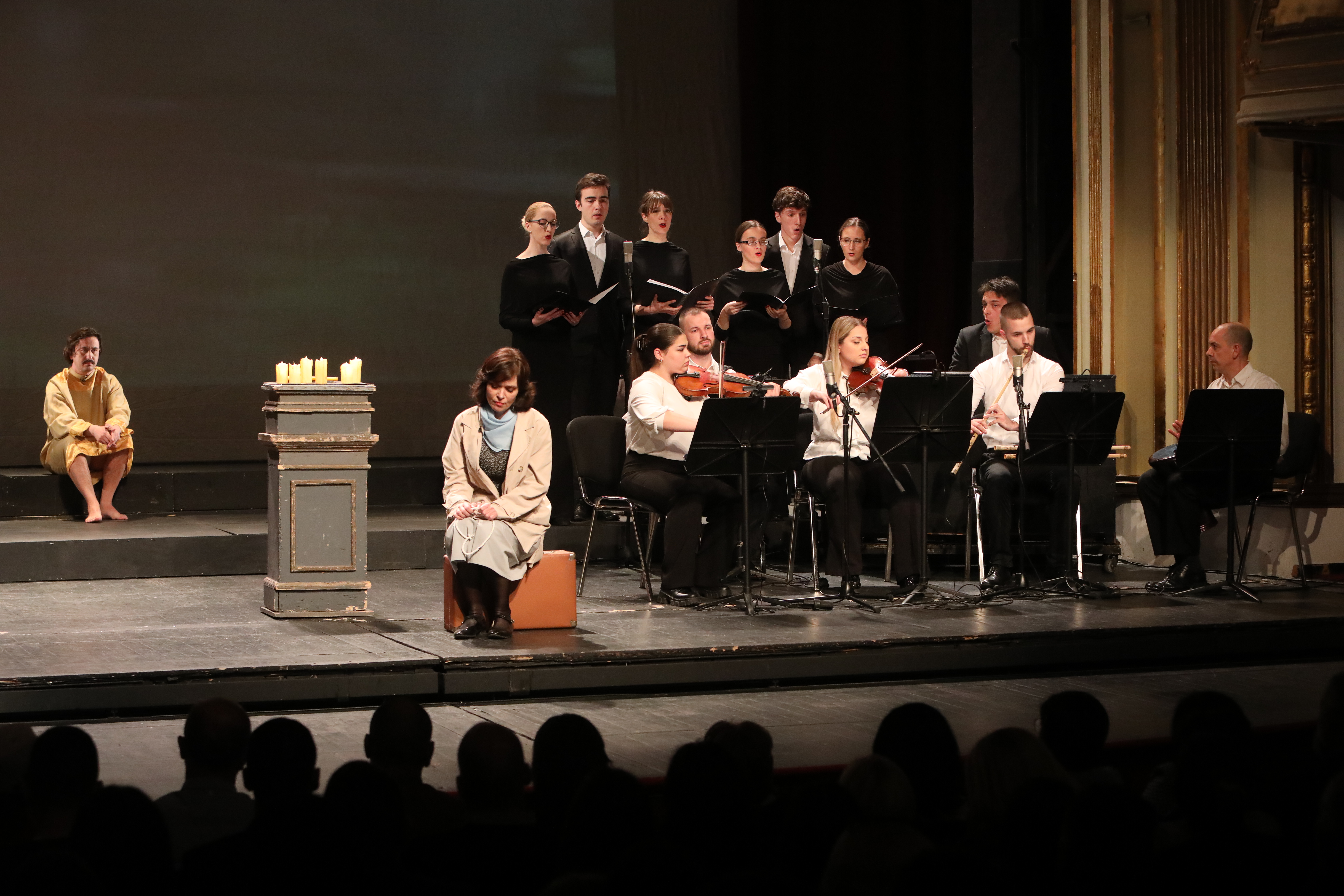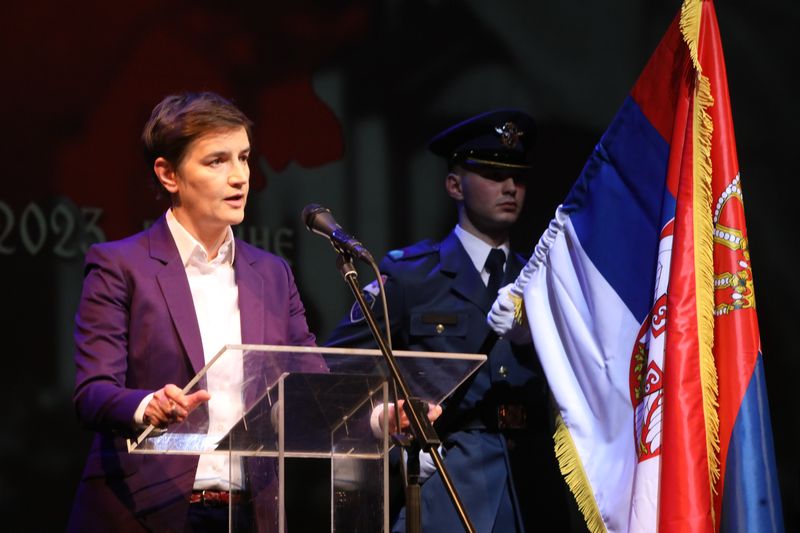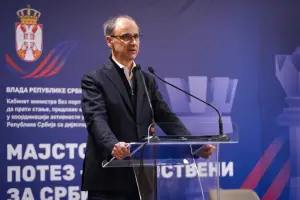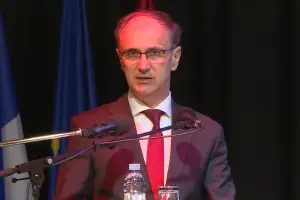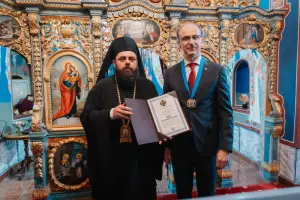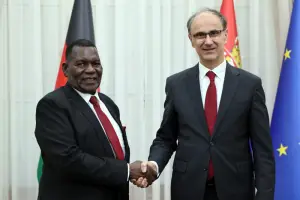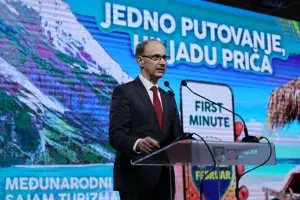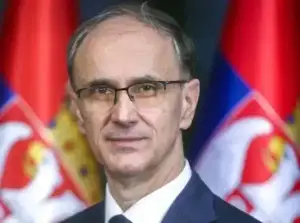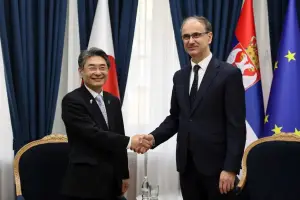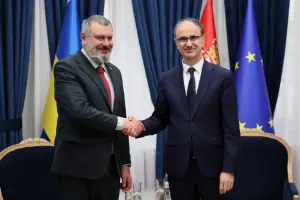Prime Minister Ana Brnabic said tonight at the commemoration of 19 years since the pogrom of Serbs in Kosovo and Metohija that Serbia today, with a responsible and courageous policy, is trying to lay different foundations for the future in which Serbian children in the province will have a carefree childhood.
Serbia builds different future in Kosovo and Metohija with responsible, courageous policy
Speaking at the state ceremony in the National Theatre in Belgrade, Brnabic pointed out that Serbia is leading a policy in which peace and not barbed wires will secure Serbian sacred sites, in which Kosovo and Metohija remain ours and emphasised that we must build the dream of a better future together with the Albanians.
Today, with a responsible and courageous state policy led by President Aleksandar Vucic, we are trying to somehow end that cycle of misfortune, history of torment, suffering, uncertainty, we are trying to lay the foundations for a different future, while not forgetting the past, in which children can peacefully enjoy their childhood, in which their parents can create something that will not be destroyed, said Brnabic.
That future is not built by Serbia, which agrees to everything and is ready to be humiliated, the Prime Minister underlined.
On the contrary, that future can be built by a Serbia that is stronger than it has ever been, proud, brave, that leads an independent policy in accordance with its interests and the interests of its people and everyone who lives in it, said the Prime Minister.
She emphasised that it took a lot of effort and time for Serbia to become such a country, to start winning and believing in itself.
It took a long time for her to wake up and shake off the injustice, to see a clear path ahead, she said and emphasised that the fact that Serbia is like this is the merit of President Aleksandar Vucic, but also of all the citizens and everyone who believed in such a policy and such a Serbia.
It is Serbia which is strong and independent enough to call things by their right name and not use euphemisms to soften the crimes committed against her.
For us pogroms will never again be riots, or aggressions and interventions, only such a Serbia has a chance, strength and vision to protect its national interests and protect its past and pave the way even when it seems that there is none, for a better and more successful future, she said.
According to her, today it is clear to everyone in Serbia and the world that there will be no more "storms and pogroms" against the Serbian people and that such crimes would be impossible in Serbia today.
Those times have passed, Serbia is no longer burying its head in the sand because it is not capable of doing more than that. We must never again allow Serbia to be so weak as not to be able to ensure the survival of our people in Kosovo and Metohija, she said.
Brnabic emphasised that our demands and expectations are rational, that our national interest is peace and stability, both for us and for all others with whom we share this part of Europe.
We do not want the main feature of Serbian-Albanian relations to be the anticipation of conflict. No nation can realize its full potential in an atmosphere of constant hatred and mistrust. It is important that we try to close that page of history and open a future in which we will be directed to each other and guided by common interest, said Brnabic and emphasised that it does not seem simple, but that it is a path without a real alternative.
The Prime Minister pointed out that our red lines are absolutely clear when it comes to Kosovo and Metohija, and our readiness for dialogue and peaceful resolution of disagreements is an expression of our strength and responsibility, not hesitation and weakness.
She added that Serbia will never be able to agree to some things, but she will try to make things better for herself and everyone in the region.
The commemoration of the Day of Remembrance of the pogrom in Kosovo and Metohija, which took place on 17 March 2004, held at the National Theatre was attended by Serbian parliament Speaker Vladimir Orlic, Ministers Nikola Selakovic, Djordje Milicevic, Tomislav Zigmanov, Jelena Begovic, Dubravka Djedovic, Mihailo Jovanovic, Darija Kisic and Rade Basta, Director of the Office for Kosovo and Metohija Petar Petkovic, MPs and representatives of the City of Belgrade.
The state ceremony was also attended by representatives of the Serbian army, the Serbian Orthodox Church and religious communities, veterans' associations, the diplomatic corps, as well as the families of the victims.
During the violence in Kosovo and Metohija on 17, 18 and 19 March 2004, at least 27 people were killed, 16 of whom were Serbs, hundreds of Serbs were injured, as well as dozens of members of the international forces who clashed with Albanian extremists protecting those attacked and their property and temples.
During the pogrom, 935 Serbian houses were destroyed and 35 religious buildings were set on fire, including 18 cultural monuments, including the ancient church of Our Lady of Ljevis.

